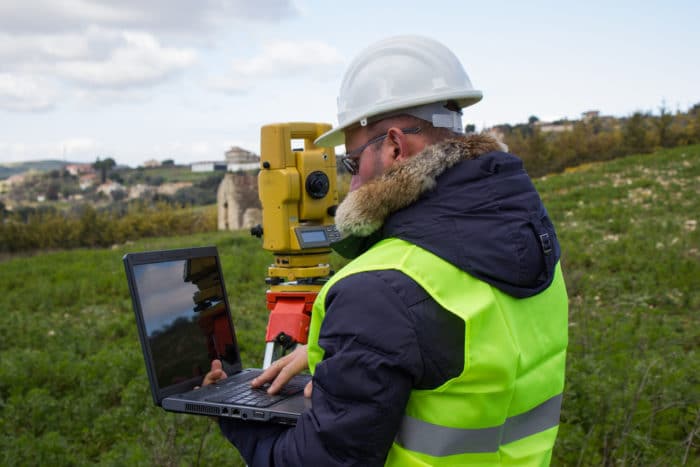Why We Love It
-
$65,410Potential Avg. Salary
-
29.3%Job Growth Rate
-
Growing DemandJob Outlook
-
Don't Take Work HomeCareer Attribute
Cartographers study and practice reproducing and updating maps or globes. In recent times, modern cartographers work using CAD and GPS systems, as well as specialized software to do their work.
Recommended Schools
What is a Cartographer?
Duties
As a cartographer, you will be responsible for completing the following tasks:
- Working with clients on their specifications and with external contacts like designers or surveyors on the information supplied.
- Conduct research and select map source data to be used in preparing or revising maps or charts to scale.
- Utilising tools such as the photogrammetric plotting instrument or digital photogrammetric workstation (DPW) to view photographs in a 3D format.
- Create, analyse and maintain geographical information databases for checking the content and accuracy of charts, maps and other documents.
- Gain insights on geographical information systems to model and assess different features of landscapes.
Day In The Life
Cartographers usually aggregate information that is necessary for preparing maps such as survey notes, reports, records, maps and aerial photographs. A big part of this role is to closely examine map content and layout according to product specifications like size, colours, projection and direct production. Further, it is your job to build and ensure that all digital databases are up-to-date. You will regularly prepare and make edits to various maps, charts, drawings and 3D models of terrains with the help of computer graphics and stereoscopic plotting.
Work Schedule
Cartographers are expected to work in a standard comfortable work environment for more than 40 hours per week. They commonly have flexible working hours and a majority of professionals in this area choose a nine-to-five routine. Some cartographers also prefer working freelance and part-time depending on their preference. Longer work hours can occur when meeting tight deadlines for multiple projects. This type of work is perfect for individuals who enjoy a practical approach to solving real world problems.
Growth Of The Job
With modern advances in technology, there is a heightened demand for accurate and effective maps that are provided in a digital format for easy access. The industry is also seeing an increasing use of maps for urban planning among local government bodies which accounts for the rising popularity of cartographers. As per the U.S. Bureau of Labour Statistics, the employment of cartographers is project to rise 29% from 2014 to 2024.
Many cartographers utilize their experience to move into independent consultancy work. You might also set up and run your own business for cartography work. Some may also choose to move into associated areas of expertise like photogrammetry, remote sensing, and some aspects of IT-related consultancy.
If employed by a large company, you will have the chance to rotate between different departments and hone your skill set in high demand areas like GIS, digital mapping and photogrammetry. Public sector roles have an established structure in place for progressing to more responsibilities and overseeing staff, once you have the required number of years in experience. You might also find more promising opportunities as a specialist in an area such as 3D visualization, GIS and photogrammetry.
Typical Employers
Since it is a comparatively small profession, not all jobs are promoted as ‘Cartographer’ so be careful when looking at job descriptions for work opportunities. The highest level of employment for a cartographer is in the architectural and engineering industry and local governments.
Career growth in this job sector is entirely dependent on the scope and size of the organisation where you find work. Cartographers are particularly in demand for public sector jobs and commercial cartography companies, i.e. oil companies, GIS companies, utility companies, environmental consultancies. Specific employers looking to hire include H2M Group, Booz Allen Hamilton, MultiLingual Solutions Inc., Central Intelligence Agency, and KEYW Corporation.
Recommended Schools
How To Become a Cartographer
You must at least possess an undergraduate degree in relevant subjects such as geomatics, geographical information technologies, computer science, earth sciences, land surveys or geology. If you are targeting more senior and specialised positions, getting a postgraduate qualification will give you a distinct advantage.
Practical experience via work placements or one year trainings as part of your academic qualifications can prove useful. To find work in the public sector, you must have solid English language and mathematics skills, a keen eye for detail and the ability to interpret complex information. In addition, much of the work is done in group settings, so teamwork skills are essential to complete maps production in a timely and accurate fashion.
Cartographer Salary Data
We’ve provided you the following to learn more about this career. The salary and growth data on this page comes from recently published Bureau of Labor Statistics data while the recommendations and editorial content are based on our research.
National Anual Salary
Low Range
$48,960Average
$65,410High Range
$98,210National Hourly Wage
Low Range
$24/hrAverage
$31/hrHigh Range
$47/hrHow do Cartographer salaries stack up to other jobs across the country? Based on the latest jobs data nationwide, Cartographer's can make an average annual salary of $65,410, or $31 per hour. On the lower end, they can make $48,960 or $24 per hour, perhaps when just starting out or based on the state you live in.
Salary Rankings And Facts
#226 Nationally for All Careers
Above Average Salary Nationally
Programs and Degrees
Here are the most common degrees for becoming a Cartographer. a is usually recommended and specifically a degree or coursework that prepares you for the particular field, see below.
Highest Education Among Cartographers
- 3.8% Doctorate
- 15% Masters
- 60.5% Bachelors
- 8.1% Associates
- 12.3% College
- 0.1% High School
- 0.2% Less than High School
Job Growth Projections and Forecast
2014 Total Jobs
12,3002024 Est. Jobs
15,900Job Growth Rate
29.3%Est. New Jobs
3,600How does Cartographer job growth stack up to other jobs across the country? By 2024, there will be a change of 3,600 jobs for a total of 15,900 people employed in the career nationwide. This is a 29.3% change in growth over the next ten years, giving the career a growth rate nationwide of Above Average.
Growth Rankings And Facts
#15 Nationally for All Careers
Above Avg. Growth Nationally
What Companies Employ The Most Cartographers
| Industry | Current Jobs | New Jobs Needed | % Increase |
|---|---|---|---|
| Local government, excluding education and hospitals | 3,300 | 800 | 1% |
| Engineering services | 1,800 | 600 | 1% |
| Management, scientific, and technical consulting services | 1,500 | 700 | 1% |















